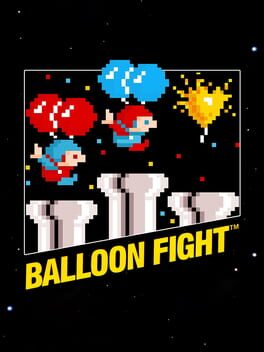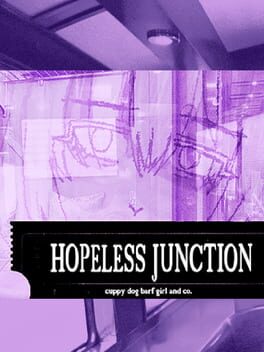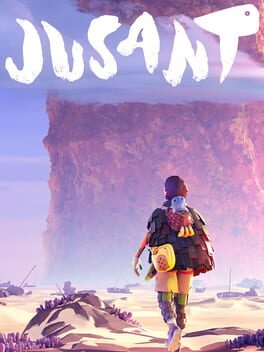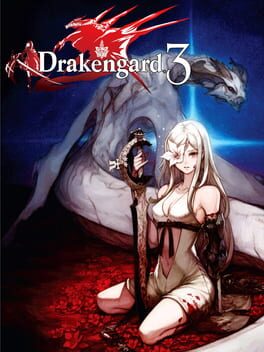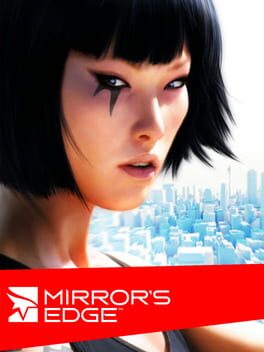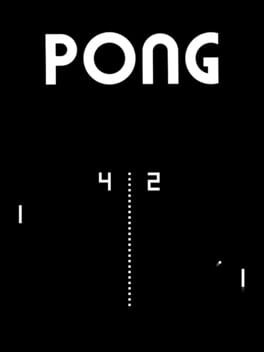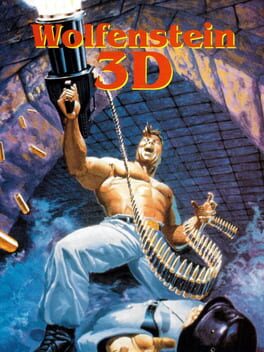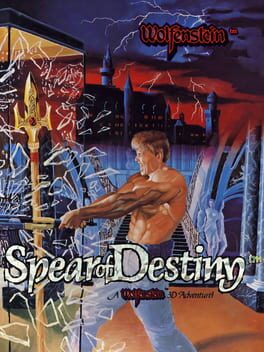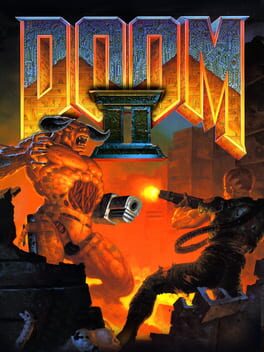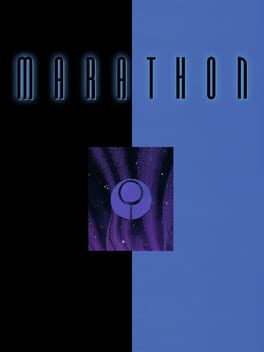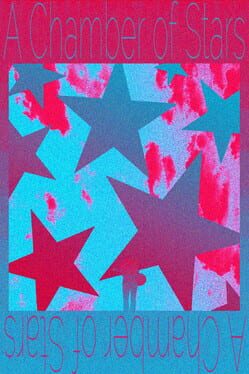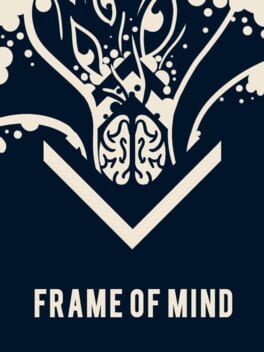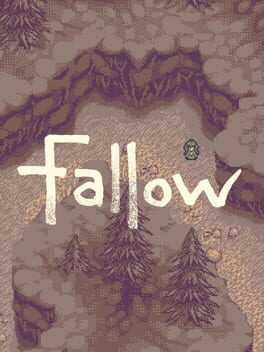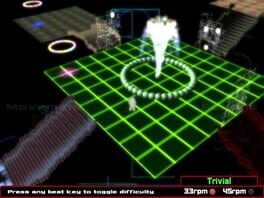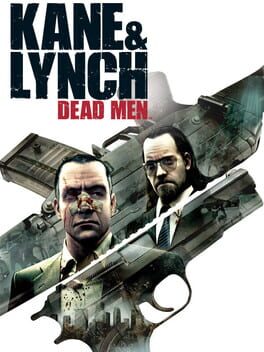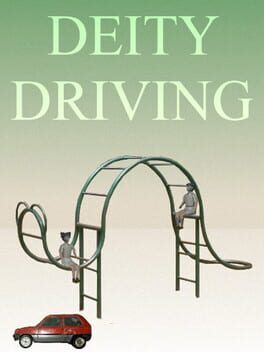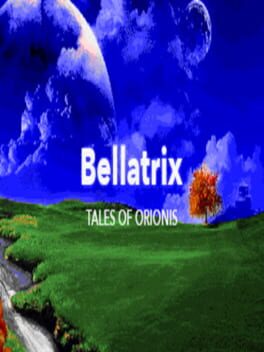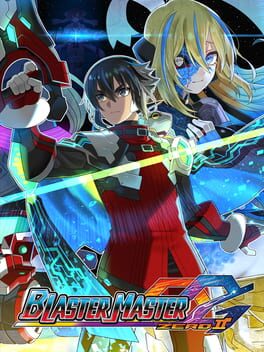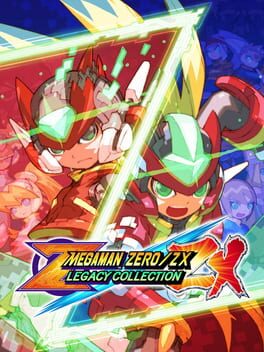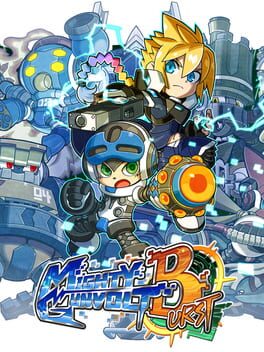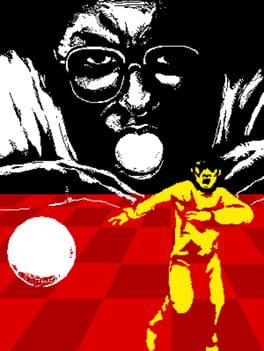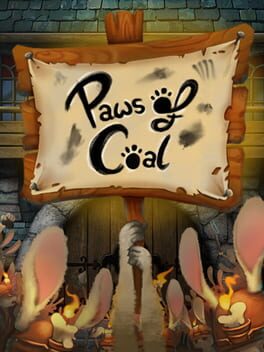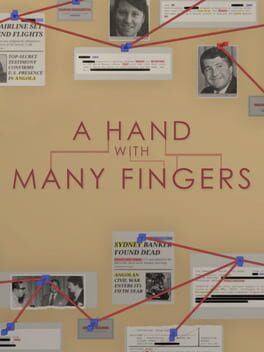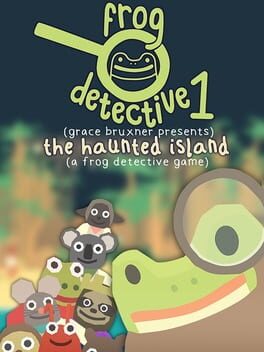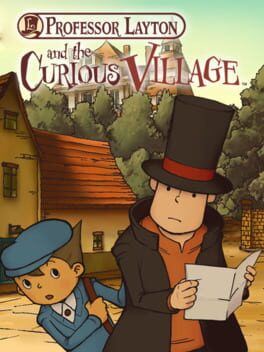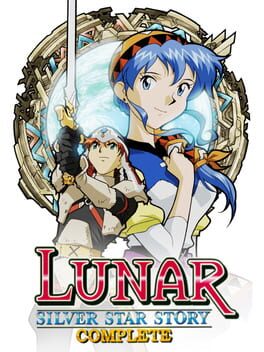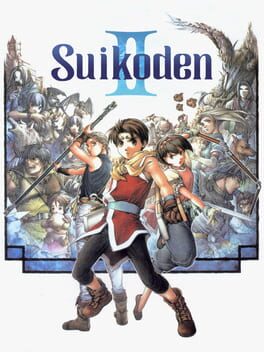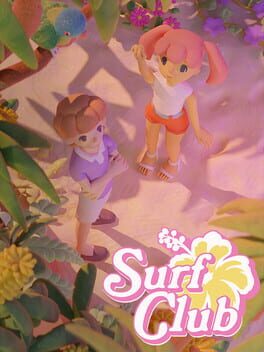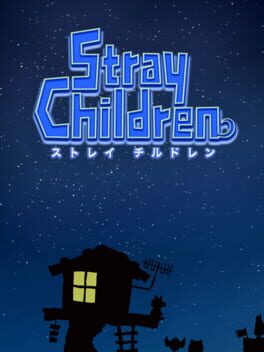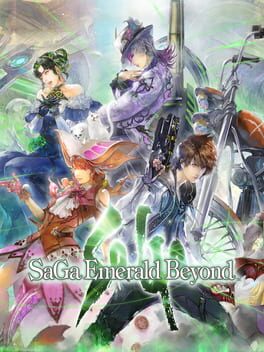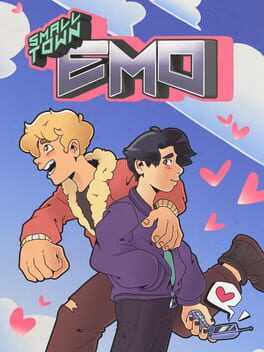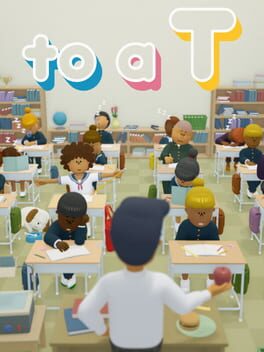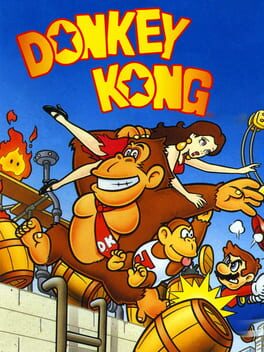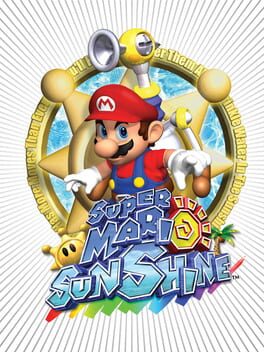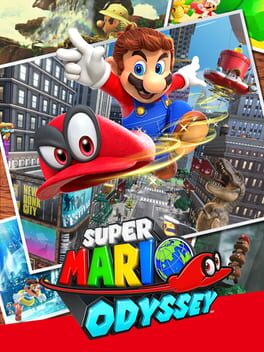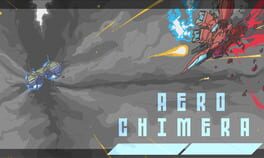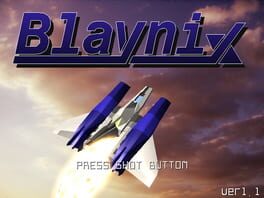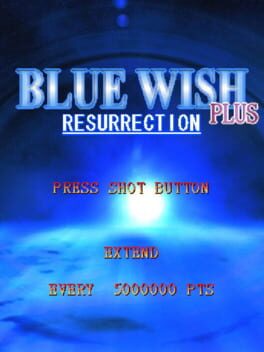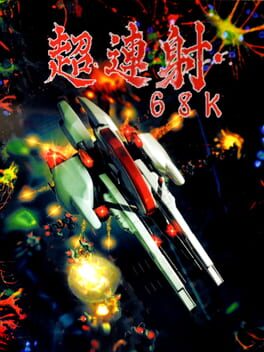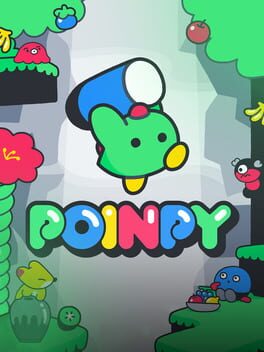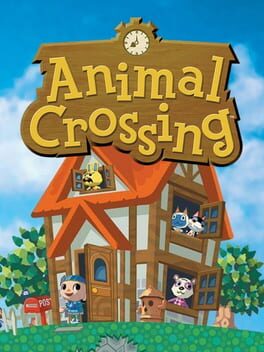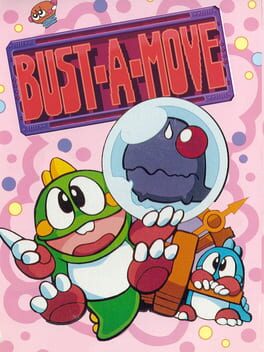Chukucla
182 reviews liked by Chukucla
Balloon Fight
1985
Documenting this here on Backloggd™ as I'm sure this will cease to be a memory within a few hours:
I just awoke from a nightmare that took place an unspecified amount of time into the future in which the desolate remains of Earth are lorded over by a Nintendo helmed regime and all of the world's conflicts are resolved through massive scale real-life BALLOON FIGHTS. Every balloon pop may as well have been a cannon blast and they always tended to be accompanied by the fading visceral screams of once afloat humans spiraling into a bottomless void, a red mist spewing into the air shortly after their disappearance.
I just awoke from a nightmare that took place an unspecified amount of time into the future in which the desolate remains of Earth are lorded over by a Nintendo helmed regime and all of the world's conflicts are resolved through massive scale real-life BALLOON FIGHTS. Every balloon pop may as well have been a cannon blast and they always tended to be accompanied by the fading visceral screams of once afloat humans spiraling into a bottomless void, a red mist spewing into the air shortly after their disappearance.
Hopeless Junction
2023
such a beautiful story, easily my favorite artstyle for a VN (that i have read). the gravity of every situation kalinda or zarina get themselves into always felt so real and scary, while never becoming gratuitous. absolutely in love with chandra and kalinda's relationship as weird as those 2 gremlins are. we love trans girls mc's in media and a toxic yuri love story is the best way to start a year off!!!! :3
Jusant
2023
A beautiful mountain-climbing game, Jusant stuns with it's quiet serenity and easy-to-grasp (pun well intended) mechanics for reaching for and holding onto handholds and footholds.
I loved looking at this game, every frame a beautiful array of colours and shapes - the leftovers of a seemingly long-dead society living upon a monstrous tower of stone. Exploring this place was joyful, between the small moments of sorrow found in reading the letters sent between the denizens of this forsaken place.
The game is everything it needs to be, no more and no less. It's short, the exact length of game it needed to be, and I thank it for not outstaying it's welcome like others might.
I loved looking at this game, every frame a beautiful array of colours and shapes - the leftovers of a seemingly long-dead society living upon a monstrous tower of stone. Exploring this place was joyful, between the small moments of sorrow found in reading the letters sent between the denizens of this forsaken place.
The game is everything it needs to be, no more and no less. It's short, the exact length of game it needed to be, and I thank it for not outstaying it's welcome like others might.
Drakengard 3
2013
don't care that the frame rate is awful; don't care that the combat is asinine; don't care that the game is unpolished, janky, ugly, and poorly considered in every respect; don't care that it was subject to predatory dlc; don't care that accord's requests are emblematic of some of the worst there is in side quest design; don't care don't care don't care
what i do care about is that this is the ultimate manifestation of YT's disinclination to work in games juxtaposed with his earnest belief in the medium as a vessel for greater things. in his grimmest failure, he finds light at the end of the tunnel. an astonishing exercise in empathy generation, one of the best finales in a game, and the only one of yoko taro's works that makes great use of backwards scripting + sequential playthroughs
what i do care about is that this is the ultimate manifestation of YT's disinclination to work in games juxtaposed with his earnest belief in the medium as a vessel for greater things. in his grimmest failure, he finds light at the end of the tunnel. an astonishing exercise in empathy generation, one of the best finales in a game, and the only one of yoko taro's works that makes great use of backwards scripting + sequential playthroughs
Drakengard 3
2013
I played it on an emulator, so it went 60 fps smooth as fuck boii
I was apprehensive at first, seeing as everything was "softer" than the first one. The hard edges (like the pumping and hitting soundtrack, the resounding sound effects and the robotic combat) are no more, you can even have fun with the combat! And the orchestrations are really nice, specially the songs throughout. But it wasn't diabolic.
When you start forming your team, i thought it was going to develop like the first one, slowly giving into the madness and the eccentric behaviours of Zero and her companions, but it was much more interesting than that. As branches go on, the group mentality settles and normalises, they talk about stuff and see past first impressions and philias, reaching the point of actually having consensual encounters like grown-ups. It goes beyond the anime-esque teenage taboos of sex and treats it like a bonding experience that develops with time and comprehension.
The rest functions as explicit expansions over the first one. The functionality of branches are represented by a character, the relationship between human (or entoner) and dragon is deeper and the ending song shows a deeper catharsis that wraps up the whole journey.
Maybe because it is not the deafening experience of the first one it didn't hit me as much, but it's more mature and humanistic in comparison, and still a game laying in the confines of what is possible for the medium
I was apprehensive at first, seeing as everything was "softer" than the first one. The hard edges (like the pumping and hitting soundtrack, the resounding sound effects and the robotic combat) are no more, you can even have fun with the combat! And the orchestrations are really nice, specially the songs throughout. But it wasn't diabolic.
When you start forming your team, i thought it was going to develop like the first one, slowly giving into the madness and the eccentric behaviours of Zero and her companions, but it was much more interesting than that. As branches go on, the group mentality settles and normalises, they talk about stuff and see past first impressions and philias, reaching the point of actually having consensual encounters like grown-ups. It goes beyond the anime-esque teenage taboos of sex and treats it like a bonding experience that develops with time and comprehension.
The rest functions as explicit expansions over the first one. The functionality of branches are represented by a character, the relationship between human (or entoner) and dragon is deeper and the ending song shows a deeper catharsis that wraps up the whole journey.
Maybe because it is not the deafening experience of the first one it didn't hit me as much, but it's more mature and humanistic in comparison, and still a game laying in the confines of what is possible for the medium
Mirror's Edge
2008
esse aqui vai ser comprido, peço perdão tenho muita coisa na cabeça
em 2009 fui apresentada a Demon's Souls, um jogo desconhecido (pasmem) de um estúdio de nicho que até então só fazia jogos que os mais assíduos fãs do PS2 conheciam. eu nem sabia o que diabos era uma FromSoftware, mas isso não importava porque a forma que me apresentaram o jogo foi como um "jogo onde você está sempre online e as pessoas podem te ajudar passivamente do mundo delas".
eu não gosto de falar que eu era solitária, eu sempre tive muitos amigos, mas talvez eu era sozinha? pouco compreendida? meus amigos dificilmente queriam jogar o que eu queria jogar (não era o caso de Demon's Souls, jogamos mto juntos), então mesmo com companhia eu aprendi a me contentar sozinha, a fazer as coisas sozinha, ser filha única não melhorou a situação. então pra mim um jogo onde você existe passivamente com os outros sem precisar interagir com eles era um sonho (eu era fã de MMO mas não aguentava o grind na época, eu entrava no bRO so pra ficar sentada nos portões de Prontera). antes do advento do streaming, sempre fantasiei com ver os outros jogarem e os outros me verem jogar também. então Demon's parecia perfeito.
bem, e era, era tudo o que eu queria e mais. você via mensagens no chão, via outras pessoas morrendo, podia chamar elas pra co-op!!! podia chamar seus amigos pra co-op!!!!! não é a toa que é um dos jogos que mais amo no planeta, e mesmo que Dark Souls tenha seguido a exata mesma formula, Demon's Souls cativou meu coração de forma intensa e não largou até hoje.
qual minha surpresa, então, ao descobrir que Super Mario Bros Wonder constrói mais ainda em cima dessa ideia de camaradagem passiva. os fantasmas de Mario Wonder, diferente dos de Demon's Souls, são em tempo real. a pessoa que você ve correndo pela fase está, de fato, correndo por ali, talvez com alguns poucos segundos de atraso, mas ela definitivamente está existindo ali naquele momento. há três formas dessas pessoas interagirem com seu mundo: ela pode dar um item a você, se você morrer e encostar nela você revive e ela pode deixar uma plaquinha de madeira no seu mundo que serve tanto de dica como alento caso você morra (seu fantasma pode tocar ali e reviver também). são maneiras bem simples de interagir com o mundo paralelo do outro, mas isso somado com a fisicalidade dessa aparição criam momentos incríveis, como por exemplo, pessoas tentando ensinar as outras a conseguirem pegar itens escondidos, marcações de segredo com suas placas de madeira, ou até simplesmente andar devagar esperando jogadores com mais dificuldade pra servir de ponto de segunda chance pra eles. tudo isso aconteceu enquanto eu jogava e eu devo admitir que não esperava uma experiência tão magica quanto essa. a falta de compromisso do online trabalha mais a seu favor do que contra, visto que não há nenhum tipo de matchmaking, é tudo extremamente orgânico e eu acho que é talvez a solução suprema pra um jogo de plataforma online, muito mais que um little big planet da vida oferece (propostas diferentes, mas eu gostei mais dessa). ver o nome dessas pessoas, alguns engraçados, você vê que sim, sempre são pessoas reais que estão com seu switch ligado nesse instante. e quem fez o jogo não é bobo, existem fases que são basicamente um lobbyzão de uma unica tela no qual o objetivo é participar de uma "caça ao tesouro", onde você vê pessoas tentando as mais diversas coisas pra descobrirem onde estão as peças escondidas. são fases literalmente feitas pra se aproveitarem do multiplayer, e eu me diverti muito guiando pessoas e sendo guiada por elas, é um tipo de conexão com estranhos que curiosamente pouquíssimos jogos proporcionam dessa maneira. meu namorado gosta de falar que é o próximo strand game e sinceramente ele ta certo.
alias super mario wonder é um jogo inteiro sobre não se sentir sozinha ou isolada. você vê outras pessoas, as plantas fazem comentário sobre o que tá acontecendo, é tudo muito animado e vivo. as plantas quando não agem como let's player, ou estão participando de um meta talk show japonês ou praticando manzai. talvez seja o motivo que tanta gente odeie elas é que talvez seja algo mais primariamente japonês que acaba se perdendo e se tornando intrusivo (ou meio Dora Aventureira da vida) quando traduzido pra outras línguas. eu entendo perfeitamente, mas como troquei pra japonês pra treinar a língua e audição, acabei notando um pouco mais essa estética presente (mas nem sempre!!!)
quanto ao jogo em si ele tem energia de mario 3D, ele ta pouco se lixando pra alienar seu publico, ele quer que você conheça e goste de coisas novas. as animações estão lindas, o mundo é vivo, não tem aquela obrigação de haver o mundo de neve ai o de deserto e ai não sei o que, é bem variado, a quantidade absurda de personagens é muito boa (Daisy!!!!!!!), as wonder flowers são MUITO mais legais e menos intrusivas do que achei que seria, cada fase é quase que inteiramente única, as fases musicais são lindas, as badges são uma ideia legal, sei lá o jogo é maravilhoso e exala criatividade de uma forma que Mario 2D não via a muito tempo. a única parte cringe são os chefes mas chefe em Mario é cringe desde sempre. no final parece que quem fez esse jogo finalmente foi jogar outros jogos além de Mario 3 (até alguns dos concorrentes :00000) e resolveu se inspirar e é assim que tem que ser.
não esperava ser concorrente fácil a GOTY do ano num ano TÃO cheio, mas aqui estamos
(eu tinha mais algo importante pra falar mas eu acho que esqueci se eu lembrar eu edito)
em 2009 fui apresentada a Demon's Souls, um jogo desconhecido (pasmem) de um estúdio de nicho que até então só fazia jogos que os mais assíduos fãs do PS2 conheciam. eu nem sabia o que diabos era uma FromSoftware, mas isso não importava porque a forma que me apresentaram o jogo foi como um "jogo onde você está sempre online e as pessoas podem te ajudar passivamente do mundo delas".
eu não gosto de falar que eu era solitária, eu sempre tive muitos amigos, mas talvez eu era sozinha? pouco compreendida? meus amigos dificilmente queriam jogar o que eu queria jogar (não era o caso de Demon's Souls, jogamos mto juntos), então mesmo com companhia eu aprendi a me contentar sozinha, a fazer as coisas sozinha, ser filha única não melhorou a situação. então pra mim um jogo onde você existe passivamente com os outros sem precisar interagir com eles era um sonho (eu era fã de MMO mas não aguentava o grind na época, eu entrava no bRO so pra ficar sentada nos portões de Prontera). antes do advento do streaming, sempre fantasiei com ver os outros jogarem e os outros me verem jogar também. então Demon's parecia perfeito.
bem, e era, era tudo o que eu queria e mais. você via mensagens no chão, via outras pessoas morrendo, podia chamar elas pra co-op!!! podia chamar seus amigos pra co-op!!!!! não é a toa que é um dos jogos que mais amo no planeta, e mesmo que Dark Souls tenha seguido a exata mesma formula, Demon's Souls cativou meu coração de forma intensa e não largou até hoje.
qual minha surpresa, então, ao descobrir que Super Mario Bros Wonder constrói mais ainda em cima dessa ideia de camaradagem passiva. os fantasmas de Mario Wonder, diferente dos de Demon's Souls, são em tempo real. a pessoa que você ve correndo pela fase está, de fato, correndo por ali, talvez com alguns poucos segundos de atraso, mas ela definitivamente está existindo ali naquele momento. há três formas dessas pessoas interagirem com seu mundo: ela pode dar um item a você, se você morrer e encostar nela você revive e ela pode deixar uma plaquinha de madeira no seu mundo que serve tanto de dica como alento caso você morra (seu fantasma pode tocar ali e reviver também). são maneiras bem simples de interagir com o mundo paralelo do outro, mas isso somado com a fisicalidade dessa aparição criam momentos incríveis, como por exemplo, pessoas tentando ensinar as outras a conseguirem pegar itens escondidos, marcações de segredo com suas placas de madeira, ou até simplesmente andar devagar esperando jogadores com mais dificuldade pra servir de ponto de segunda chance pra eles. tudo isso aconteceu enquanto eu jogava e eu devo admitir que não esperava uma experiência tão magica quanto essa. a falta de compromisso do online trabalha mais a seu favor do que contra, visto que não há nenhum tipo de matchmaking, é tudo extremamente orgânico e eu acho que é talvez a solução suprema pra um jogo de plataforma online, muito mais que um little big planet da vida oferece (propostas diferentes, mas eu gostei mais dessa). ver o nome dessas pessoas, alguns engraçados, você vê que sim, sempre são pessoas reais que estão com seu switch ligado nesse instante. e quem fez o jogo não é bobo, existem fases que são basicamente um lobbyzão de uma unica tela no qual o objetivo é participar de uma "caça ao tesouro", onde você vê pessoas tentando as mais diversas coisas pra descobrirem onde estão as peças escondidas. são fases literalmente feitas pra se aproveitarem do multiplayer, e eu me diverti muito guiando pessoas e sendo guiada por elas, é um tipo de conexão com estranhos que curiosamente pouquíssimos jogos proporcionam dessa maneira. meu namorado gosta de falar que é o próximo strand game e sinceramente ele ta certo.
alias super mario wonder é um jogo inteiro sobre não se sentir sozinha ou isolada. você vê outras pessoas, as plantas fazem comentário sobre o que tá acontecendo, é tudo muito animado e vivo. as plantas quando não agem como let's player, ou estão participando de um meta talk show japonês ou praticando manzai. talvez seja o motivo que tanta gente odeie elas é que talvez seja algo mais primariamente japonês que acaba se perdendo e se tornando intrusivo (ou meio Dora Aventureira da vida) quando traduzido pra outras línguas. eu entendo perfeitamente, mas como troquei pra japonês pra treinar a língua e audição, acabei notando um pouco mais essa estética presente (mas nem sempre!!!)
quanto ao jogo em si ele tem energia de mario 3D, ele ta pouco se lixando pra alienar seu publico, ele quer que você conheça e goste de coisas novas. as animações estão lindas, o mundo é vivo, não tem aquela obrigação de haver o mundo de neve ai o de deserto e ai não sei o que, é bem variado, a quantidade absurda de personagens é muito boa (Daisy!!!!!!!), as wonder flowers são MUITO mais legais e menos intrusivas do que achei que seria, cada fase é quase que inteiramente única, as fases musicais são lindas, as badges são uma ideia legal, sei lá o jogo é maravilhoso e exala criatividade de uma forma que Mario 2D não via a muito tempo. a única parte cringe são os chefes mas chefe em Mario é cringe desde sempre. no final parece que quem fez esse jogo finalmente foi jogar outros jogos além de Mario 3 (até alguns dos concorrentes :00000) e resolveu se inspirar e é assim que tem que ser.
não esperava ser concorrente fácil a GOTY do ano num ano TÃO cheio, mas aqui estamos
(eu tinha mais algo importante pra falar mas eu acho que esqueci se eu lembrar eu edito)
Super Mario 64
1996
this game is super cool. it's a high-grade experiment that barely cares about the (already not that established) Mario tropes in exchange for nonsense tiny playgrounds that have more ideas than they have "levels" inside them. i think that's cool. it barely feels like you're playing a videogame sometimes. the floating pieces of land that you walk on are there almost entirely to take advantage of a piece of Mario's movement options, so they actually feel like those 2D Mario levels where every single thing is there in the name of the core game. but i unfortunately kinda hate that part.
i've never been a fan of nintendo's utilitarian approach to design. it just means that areas must be in some way useful more than they are actual places. in 64 this means that you're forced to care about Mario's (conceptually cool) moveset at every opportunity. i can't even enjoy my abstract nothinglands in peace without having to engage with some random setpiece to get a star.
it's the structure as well… yuno.. i'm not one to usually care about intricate challenges when a game cares about it more than anything. even considering how loose some star objectives are, they're still filled with specific little challenges that completely ruin any sense of hanging out i could've had. yeah, i also really dislike the way almost all stars kick you out of the levels. they sometimes linearly change the level to different versions of themselves that make other stars possible and some others impossible, but sometimes that just makes the levels way too bite-sized to make an impact. like, i have to get at least 70 stars in this thing, so i have no time to keep playing around because that shit takes time to do. i get a similar feeling when i'm done with 4 worlds in 2D Mario games and i know that i still gotta make my way through another 4 worlds. i'm already dreading to do the rest before i'm even there.
when you get used to a level's flow in Mario 64, it gets a little better - but then you gotta consciously go through that all over again and see some new tiny setpieces in another level. and it's gonna really suck when you realize that you can only get all the red coins (of which you already spent some time looking for) when the level changes to another star and a path to that last one opens up.
but it's such a magical game with magical lands… these understated little boxes of characters and structures made tangible only by Mario's presence are a thing to behold. the level Tall, Tall Mountain, for example, is just this huge chunk of a mountain that you gotta climb multiple times to get different stars in different situations. it feels monumental because it's one of the few levels that takes the game's trend toward up/downhill climbing to the foreground of the play. in this level specifically, stopping to smell the roses feels positively uncanny because, since everything is there for a mechanical purpose, it loses itself in the absence of interaction. that's kinda awesome but it makes my head hurt a little.
it irks me because i genuinely enjoy the landscapes in here. they're the extreme version of the visually agnostic Mario levels that feel completely alien because of how random and generic their assets are. by setting the levels up as these random paintings that you stumble onto and not holding on to even some basic staples like the turtle guys and pipes, they made something that feels really uncanny.
i don't really get how people frame some games like Majora's Mask as being "mysterious" when they feature some really charming and normal-ass writing, full-on cutscenes, and NPCs with schedules walking around the world. it feels way more deliberate than the surprising nothings that Mario 64 gives players. there's a vague sense that Bowser took over Peach's Castle but absolutely nothing that contextualizes the bonkers structure. for me that's what makes it interesting! it just really loses me when those cool aspects are stuck with nintendo's approach to games.
Mario 64 is stuck in an impossible equation in my head bc it's at once the coolest game by nintendo that i've touched because it's made by them and also a game that i dislike playing because it still tries to follow their design pillars so much. goddamnit now i wanna play more nintendo games to satisfy my curiosity. please help me
i've never been a fan of nintendo's utilitarian approach to design. it just means that areas must be in some way useful more than they are actual places. in 64 this means that you're forced to care about Mario's (conceptually cool) moveset at every opportunity. i can't even enjoy my abstract nothinglands in peace without having to engage with some random setpiece to get a star.
it's the structure as well… yuno.. i'm not one to usually care about intricate challenges when a game cares about it more than anything. even considering how loose some star objectives are, they're still filled with specific little challenges that completely ruin any sense of hanging out i could've had. yeah, i also really dislike the way almost all stars kick you out of the levels. they sometimes linearly change the level to different versions of themselves that make other stars possible and some others impossible, but sometimes that just makes the levels way too bite-sized to make an impact. like, i have to get at least 70 stars in this thing, so i have no time to keep playing around because that shit takes time to do. i get a similar feeling when i'm done with 4 worlds in 2D Mario games and i know that i still gotta make my way through another 4 worlds. i'm already dreading to do the rest before i'm even there.
when you get used to a level's flow in Mario 64, it gets a little better - but then you gotta consciously go through that all over again and see some new tiny setpieces in another level. and it's gonna really suck when you realize that you can only get all the red coins (of which you already spent some time looking for) when the level changes to another star and a path to that last one opens up.
but it's such a magical game with magical lands… these understated little boxes of characters and structures made tangible only by Mario's presence are a thing to behold. the level Tall, Tall Mountain, for example, is just this huge chunk of a mountain that you gotta climb multiple times to get different stars in different situations. it feels monumental because it's one of the few levels that takes the game's trend toward up/downhill climbing to the foreground of the play. in this level specifically, stopping to smell the roses feels positively uncanny because, since everything is there for a mechanical purpose, it loses itself in the absence of interaction. that's kinda awesome but it makes my head hurt a little.
it irks me because i genuinely enjoy the landscapes in here. they're the extreme version of the visually agnostic Mario levels that feel completely alien because of how random and generic their assets are. by setting the levels up as these random paintings that you stumble onto and not holding on to even some basic staples like the turtle guys and pipes, they made something that feels really uncanny.
i don't really get how people frame some games like Majora's Mask as being "mysterious" when they feature some really charming and normal-ass writing, full-on cutscenes, and NPCs with schedules walking around the world. it feels way more deliberate than the surprising nothings that Mario 64 gives players. there's a vague sense that Bowser took over Peach's Castle but absolutely nothing that contextualizes the bonkers structure. for me that's what makes it interesting! it just really loses me when those cool aspects are stuck with nintendo's approach to games.
Mario 64 is stuck in an impossible equation in my head bc it's at once the coolest game by nintendo that i've touched because it's made by them and also a game that i dislike playing because it still tries to follow their design pillars so much. goddamnit now i wanna play more nintendo games to satisfy my curiosity. please help me
Mario es una apuesta segura en esto de jugar videojuegos, y el mimo que dedica Nintendo a sus entregas plataformeras ha sido engrasado con los años hasta alcanzar el nivel de perfección. No obstante, la fórmula 2D de la saga se había quedado estancada por la monótona repetición de las entregas New y su descuidada presentación visual.
Wonder responde a estas diferencias con la entrega más adorable y accesible de la serie, que constantemente va proponiendo nuevas ideas para romper la monotonía y evitar las odiosas comparaciones con sus predecesores. Es tan divertido como de costumbre, y encima ha recibido un notable upgrade en su apartado visual para que nadie pueda burlarse entre esos pánfilos tugurios de Internet. Sin embargo, creo que en su atrevimiento termina pecando de ser muy predecible y rígido en su estructura, convirtiendo el resto del nivel en un preámbulo a la consecución de una Flor Maravilla. No es que tengan un diseño pobre en sí, pero al hacer las fases más pequeñas de lo habitual y con abundancia de power-ups para facilitar que el jugador posea la transformación adecuada para el momento adecuado, rara vez da la sensación de que estemos saliéndonos del guion previsto por Nintendo.
Como si fuésemos una cobaya guiándose a través de un laberinto, ¿hasta qué punto toma sus propias decisiones, o actúa por un estímulo convenientemente colocado por el diseñador? En consecuencia, la jugabilidad se sabe menos orgánica y más dependiente a la maravilla que esconde cada nivel (como si hubiese necesidad de que todos tengan una, y casi siempre en la segunda mitad de la fase). Falta espacio para la experimentación, y falta desafío que ponga en valor lo que hayamos aprendido. Wonder es una de las entregas más fáciles de la serie y la gran mayoría de obstáculos que introduce están bastante desaprovechados. No pido necesariamente abrazar la (sobrevalorada) cultura Kaizo como si no hubiese un mañana. Pero un mundo extra al menos, más difícil de lo habitual, no le hubiera venido mal. No cuento el nivel final-final por razones obvias e invisibles.
Todo esto no quita que Wonder tenga grandes aciertos y detalles en su diseño global. Encontrar una tubería en el mapamundi que haga de tease de próximos mundos a visitar está guay. Jugar con las princesas está guay (aunque los personajes ya no posean características propias que los distingan, eso no está tan guay). La introducción de medallas para emplear habilidades secundarias es una forma estupenda para ofrecer opciones de accesibilidad para quienes quieran (y no). El multijugador funciona, ya es un avance respecto al de los NSMB. Y por supuesto, coser a balazos a las plantas Piraña cuando cantan está brutalmente guay.
'Super Mario Bros. Wonder' es una maravilla de juego, valga la redundancia. Pero da la sensación de que parte de la esencia Mario se ha perdido entre la purpurina que desprende.
Wonder responde a estas diferencias con la entrega más adorable y accesible de la serie, que constantemente va proponiendo nuevas ideas para romper la monotonía y evitar las odiosas comparaciones con sus predecesores. Es tan divertido como de costumbre, y encima ha recibido un notable upgrade en su apartado visual para que nadie pueda burlarse entre esos pánfilos tugurios de Internet. Sin embargo, creo que en su atrevimiento termina pecando de ser muy predecible y rígido en su estructura, convirtiendo el resto del nivel en un preámbulo a la consecución de una Flor Maravilla. No es que tengan un diseño pobre en sí, pero al hacer las fases más pequeñas de lo habitual y con abundancia de power-ups para facilitar que el jugador posea la transformación adecuada para el momento adecuado, rara vez da la sensación de que estemos saliéndonos del guion previsto por Nintendo.
Como si fuésemos una cobaya guiándose a través de un laberinto, ¿hasta qué punto toma sus propias decisiones, o actúa por un estímulo convenientemente colocado por el diseñador? En consecuencia, la jugabilidad se sabe menos orgánica y más dependiente a la maravilla que esconde cada nivel (como si hubiese necesidad de que todos tengan una, y casi siempre en la segunda mitad de la fase). Falta espacio para la experimentación, y falta desafío que ponga en valor lo que hayamos aprendido. Wonder es una de las entregas más fáciles de la serie y la gran mayoría de obstáculos que introduce están bastante desaprovechados. No pido necesariamente abrazar la (sobrevalorada) cultura Kaizo como si no hubiese un mañana. Pero un mundo extra al menos, más difícil de lo habitual, no le hubiera venido mal. No cuento el nivel final-final por razones obvias e invisibles.
Todo esto no quita que Wonder tenga grandes aciertos y detalles en su diseño global. Encontrar una tubería en el mapamundi que haga de tease de próximos mundos a visitar está guay. Jugar con las princesas está guay (aunque los personajes ya no posean características propias que los distingan, eso no está tan guay). La introducción de medallas para emplear habilidades secundarias es una forma estupenda para ofrecer opciones de accesibilidad para quienes quieran (y no). El multijugador funciona, ya es un avance respecto al de los NSMB. Y por supuesto, coser a balazos a las plantas Piraña cuando cantan está brutalmente guay.
'Super Mario Bros. Wonder' es una maravilla de juego, valga la redundancia. Pero da la sensación de que parte de la esencia Mario se ha perdido entre la purpurina que desprende.
Pong
1972
33 lists liked by Chukucla
by drinkrust |
156 Games
by GKG |
128 Games
by Ardwyw_mp3 |
60 Games
by Ardwyw_mp3 |
257 Games
by LordDarias |
16 Games
by aidensoberbo |
35 Games
by Ardwyw_mp3 |
140 Games
by Ardwyw_mp3 |
22 Games
by MiyaKa |
68 Games
by vehemently |
60 Games
